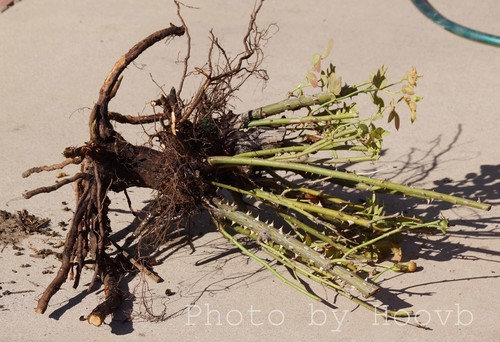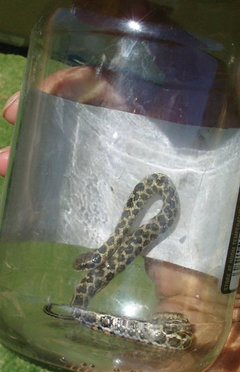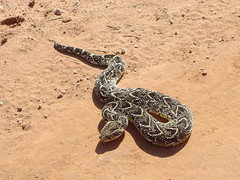11/25/15: Rose rootstock, recipes, tips to lose weight
strawchicago z5
8 years ago
last modified: 8 years ago
Featured Answer
Sort by:Oldest
Comments (75)
Related Discussions
Recipes to lose weight & sleep well
Comments (10)You might like one of my favorite lunches, or a smaller version of it as a bedtime snack: --small palm-full of almonds - 6 to 10? (I soak and dehydrate them before I eat any nuts to make them easier to digest and increase the nutrition - this is a similar process for the overnight soaking for making almond milk) - 1 stalk of celery - 1 small apple or some dehydrated apple slices (have you checked out the "3 Apple-A-Day Plan" by Tammi Flynn, M.S., R.D.) - 1 ounce of cheese By the time you thoroughly chew this meal, you will be able to go without a snack for hours. This combination also includes several kinds of fiber than what you can get from almonds alone. And unless you eat the pulp, you will miss the largest percentage of the fiber and much of the nutrition. I see you are adding a high-fiber cereal for additional fiber. I don't eat commercial cereal of any kind - it's basically an over-priced food rip-off and you can make "raw" cereal for more healthy enzymes. [If you need any recipes using the pulp, I make something nearly every week with raw or dehydrated almond pulp - "raw" cookies, crackers, "cereal"..... And I use the dehydrated pulp in recipes that call for almond flour. I also use a nut milk bag to strain the pulp, which I think will give you better results and more milk, than a strainer.] Types of fiber.... Pectin - slows the absorption of food after meals (beneficial to diabetics). Cellulose - is a non-digestible carbohydrate. Lignin - a fiber good for lowering cholesterol levels and preventing gallstone formation. Hemicellulose - an indigestible complex carbohydrate that absorbs water and is good or weight loss, constipation, colon cancer, and controlling carcinogens in the intestinal tract. The recipe at the link below is a BIG HIT around our house. I don't know how it affects sleep because I don't eat after 6 pm, go to bed at 9 pm, and get up at 3 am. Being bone tired from a long day makes me sleep. Plus, I eat a lot of raw whole foods throughout the day. I have made the recipe below with pecans, almonds and walnuts - pecans are the favorite. It's not heated at a high heat, so it retains more enzymes. Because the nuts were soaked overnight first, they are easier to digest and have more available nutrition. Chia seeds may also be another nighttime option for Omega 3 and a sleep aid (lots of documentation available if you do a search) and there are any number of ways to eat AND drink chia seeds. Chai Chia "Pudding" 2 c. boiling water 2 Chai tea bags Steep 15-minutes. Add: 3 T. chia seeds, sweetener, and a small amount of milk or nut milk. Allow to sit in the refrigerator for several hours before using. -Grainlady Here is a link that might be useful: Sweetly Spiced Crispy Pecans...See More10/18/15 journal: Things you learn, tips and quotes that helped?
Comments (81)Man did I ever start something with the Indonesian Peanut Butter Chicken. :) Too funny! Here is my recipe in case anyone wants to try it: INDONESIAN CHICKEN SATE WITH PEANUT SAUCE 2 whole chicken breasts (I usually triple the recipe) 1 clove garlic, crushed 1/2 tsp curry powder 1/2 tsp cumin powder 1/2 tsp chili powder 1 tbsp lemon juice 2 tbsps soy sauce 4 tbsp chicken bouillon broth Mix everything but the chicken breasts in a bowl. Use this as a marinade over the chicken. Refrigerate for 1-2 hours. Remove the chicken from the marinade (reservind the marinade). Bake in oven 350F (I use clay pieces to cook my chicken on - really good results). If on clay, no need to turn. PEANUT SAUCE (If you triple the recipe for the chicken/marinade, then triple the peanut sauce. 2 tbsp vegetable oil 2 shallots (I don't use this) 1 tbsp brown sugar 1/3 cup smooth or crunchy peanut butter 2/3 cup water 3 tbsp whipping cream (I use 2% milk) Pour the reserved marinade in a pan, add the peanut sauce ingredients and thicken. Serve marinade over chicken and rice. I like to saute some nuts. It's good to put sauted peppers on top. It's delicious. Tell me if you try it. ---------------------------- Jess, that was a good website. Carol...See More10/27/15: Tips & recipes & thoughts to healthy life and healthy roses
Comments (63)JESS: Thank you for the pics. & neat info. about Badger .. I really enjoy learning about the animals in South Africa. One cup of chicken manure per bush is TOO MUCH. In a British rose forum, a lady burnt her roses by using chicken manure once a month. In my cold zone, I use chicken manure VERY SMALL amount when the temp is cool & rainy. Folks use Rose-Tone (has chicken manure) once a month for roses in pots. But that has only 1/6 chicken manure. I would use only 1/2 cup, 1 cup would be too salty. I killed a rose by mixing 1/2 cup of chicken manure in the planting hole. When chicken manure touches the root, it kills the root, best to dilute ONLY 1/2 cup with soil before spreading around the bush. I started a new thread, "10/30/15: Bad habits, good habits, rose & health tips, recipes." http://forums.gardenweb.com/discussions/3473294/m=3/10-30-15-bad-habits-good-habits-rose-and-health-tips-recipes...See More11/20/15: daily journal toward health & organic ways & weight loss
Comments (64)Msgirl: mineral oil is effective in controlling rose-scale pest. Khalid asked excellent questions in his thread "organic treatment ...", so I re-post some info. here. Johnson Baby oil is the same as mineral oil, except it reeks of perfume. Very effective against thrips and scale according to the New Zealand research (see Khalid's thread). http://forums.gardenweb.com/discussions/3453227/organic-treatment-against-pests-and-fungus-in-zone-9a?n=40 "Mineral oils sprayed onto citrus trees can control a wide range of pests, including mites, aphids, psyllids, leafminers and scale. The control effect of the oil is mainly by suffocation, when the oil moves into the spiracles (breathing holes) of the insects. Recently, it has been shown that the oil also controls insects by modifying their behavior. For example, female leafminers do not lay eggs on leaves where there are oil deposits. Mineral oil may also reduce the level of transmission of virus diseases by aphids Advantages of Oil Spray Oils have several advantages compared to chemical insecticides. Their main benefit is that they are broad-spectrum. They control a wide range of pests, as well as fungus diseases such as black spot and greasy spot. They are even effective against the eggs of aphids, mites and some moths. Furthermore, they are easy to handle and relatively safe to the grower applying them. They dissipate quickly after spraying. Mineral oils also kill any algae growing on the trees and fruit, leaving them clean." http://www.agnet.org/library.php?func=view&id=20110711110304...See Morejim1961 / Central Pennsylvania / Zone 6
8 years agostrawchicago z5
8 years agolast modified: 8 years agostrawchicago z5
8 years agolast modified: 8 years agojessjennings0 zone 10b
8 years agolast modified: 8 years agostrawchicago z5 thanked jessjennings0 zone 10bKhalid Waleed (zone 9b Isb)
8 years agostrawchicago z5
8 years agolast modified: 8 years agojim1961 / Central Pennsylvania / Zone 6
8 years agostrawchicago z5 thanked jim1961 / Central Pennsylvania / Zone 6strawchicago z5
8 years agolast modified: 8 years agojim1961 / Central Pennsylvania / Zone 6
8 years agorosecanadian
8 years agojim1961 / Central Pennsylvania / Zone 6
8 years agolast modified: 8 years agostrawchicago z5 thanked jim1961 / Central Pennsylvania / Zone 6strawchicago z5
8 years agolast modified: 8 years agojessjennings0 zone 10b
8 years agolast modified: 8 years agostrawchicago z5 thanked jessjennings0 zone 10bjim1961 / Central Pennsylvania / Zone 6
8 years agolast modified: 8 years agostrawchicago z5 thanked jim1961 / Central Pennsylvania / Zone 6jim1961 / Central Pennsylvania / Zone 6
8 years agomsdorkgirl
8 years agojessjennings0 zone 10b
8 years agojessjennings0 zone 10b
8 years agolast modified: 8 years agoKhalid Waleed (zone 9b Isb)
8 years agojim1961 / Central Pennsylvania / Zone 6
8 years agostrawchicago z5 thanked jim1961 / Central Pennsylvania / Zone 6strawchicago z5
8 years agolast modified: 8 years agorosecanadian
8 years agojim1961 / Central Pennsylvania / Zone 6
8 years agolast modified: 8 years agorosecanadian
8 years agostrawchicago z5
8 years agolast modified: 8 years agorosecanadian
8 years agoUser
8 years agolast modified: 8 years agojim1961 / Central Pennsylvania / Zone 6
8 years agojessjennings0 zone 10b
8 years agoKhalid Waleed (zone 9b Isb)
8 years agolast modified: 8 years agostrawchicago z5 thanked Khalid Waleed (zone 9b Isb)rosecanadian
8 years agostrawchicago z5
8 years agolast modified: 8 years agorosecanadian
8 years agostrawchicago z5
8 years agolast modified: 8 years agojim1961 / Central Pennsylvania / Zone 6
8 years agojessjennings0 zone 10b
8 years agorosecanadian
8 years agostrawchicago z5
8 years agolast modified: 8 years agoKhalid Waleed (zone 9b Isb)
8 years agolast modified: 8 years agostrawchicago z5 thanked Khalid Waleed (zone 9b Isb)strawchicago z5
8 years agolast modified: 8 years agojim1961 / Central Pennsylvania / Zone 6
8 years agolast modified: 8 years ago
Related Stories

MOST POPULAR7 Ways to Design Your Kitchen to Help You Lose Weight
In his new book, Slim by Design, eating-behavior expert Brian Wansink shows us how to get our kitchens working better
Full Story
KITCHEN DESIGNWorld of Design: Favorite Recipes From Food Lovers Around the Globe
Travel with your tastebuds and experience for yourself these international foodies' favorite dishes
Full Story
FARM YOUR YARDHow to Grow Vegetables in Containers
Get glorious vegetables and fruits on your patio with a pro’s guidance — including his personal recipe for potting mix
Full Story
KITCHEN DESIGNA Cook’s 6 Tips for Buying Kitchen Appliances
An avid home chef answers tricky questions about choosing the right oven, stovetop, vent hood and more
Full Story
WINTER GARDENINGPruning Secrets for Exquisite Roses
Encourage gorgeous blooms year after year with this time-tested advice on how to prune your rosebush in winter for health and shape
Full Story
STORAGE5 Tips for Lightening Your Closet’s Load
Create more space for clothes that make you look and feel good by learning to let go
Full Story
MOST POPULAR33 Magic Household Cleaning Tips
Houzzers from around the world share their tips for transforming housework into child’s play
Full Story
ORGANIZINGProfessional Tips for Organizing Your Clothes Closet
As summer draws to a close, get expert advice on editing and organizing your wardrobe
Full Story
BATHROOM DESIGN10 Top Tips for Getting Bathroom Tile Right
Good planning is essential for bathroom tile that's set properly and works with the rest of your renovation. These tips help you do it right
Full Story
GARDENING GUIDESWhat Kind of Roses Should You Grow?
Want to add the beauty of roses to your garden? Find out which ones, from old-fashioned to modern, are right for you
Full Story

































msdorkgirl